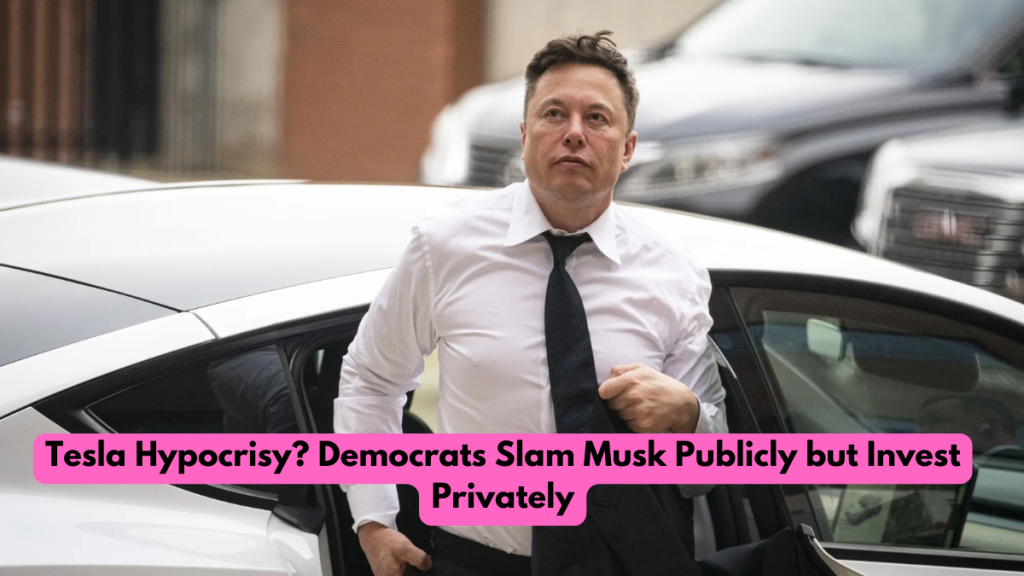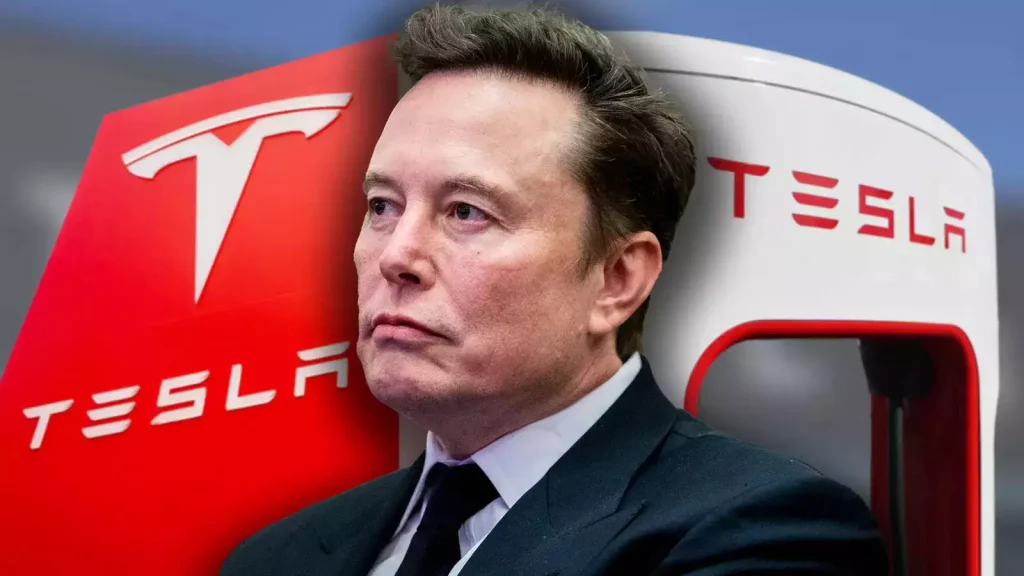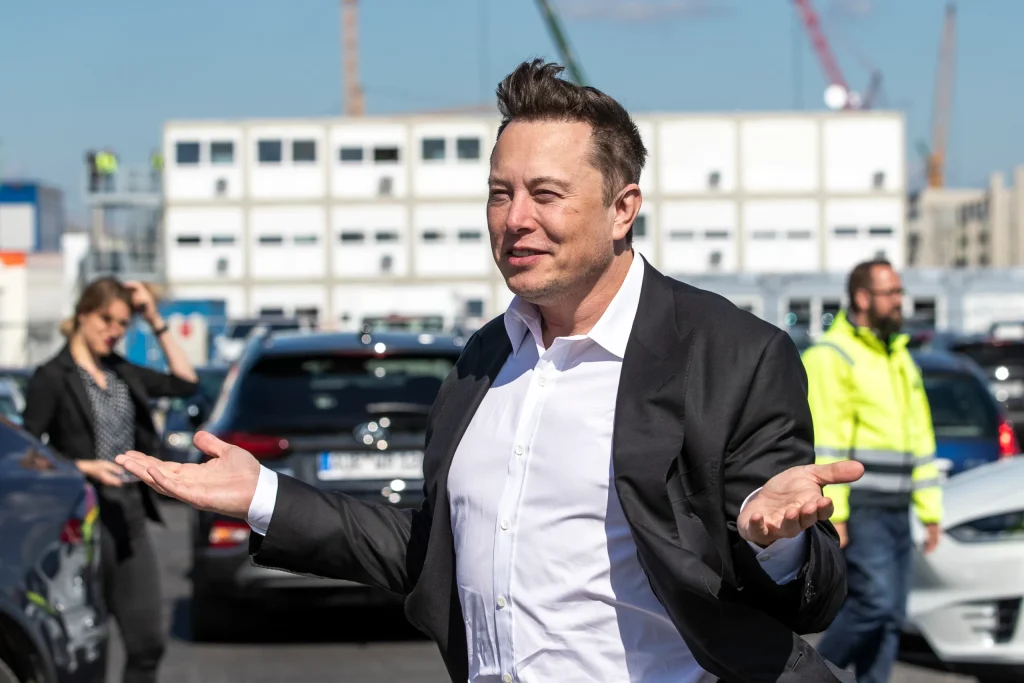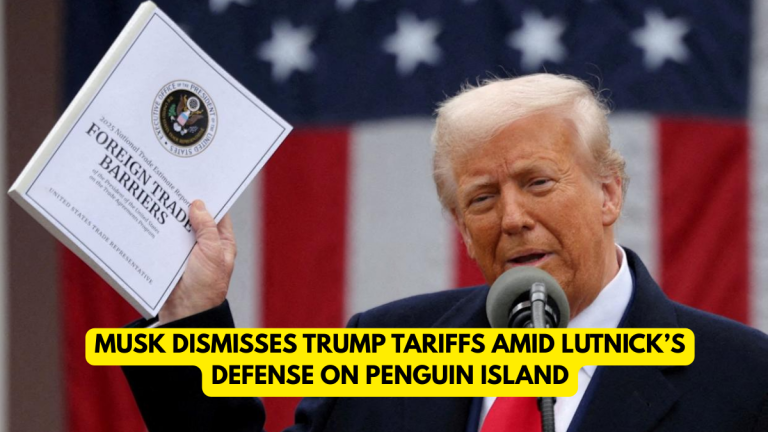
In a political landscape increasingly defined by contradictions, a recent revelation has raised eyebrows across the aisle: several Democratic lawmakers who have publicly criticized Elon Musk and his growing influence in American politics and technology are also investing in his company, Tesla. The situation has prompted accusations of hypocrisy, raising questions about transparency, ethics, and financial disclosure among U.S. elected officials.
Public Criticism vs. Private Investment
Elon Musk, CEO of Tesla and SpaceX, has become a lightning rod for political debate. His alleged involvement in the newly proposed Department of Government Efficiency (DOGE) and association with Donald Trump’s circle have drawn sharp rebukes from Democratic legislators. However, financial disclosure filings from early 2025 reveal that some of those same lawmakers are purchasing substantial shares in Tesla.
Rep. Josh Gottheimer (D-N.J.)
Rep. Josh Gottheimer has been an outspoken critic of Musk’s access to federal infrastructure and his growing control over defense and communications sectors. Gottheimer has labeled DOGE a potential risk to “Americans’ privacy and financial security.” Despite his concerns, disclosure documents show that he purchased up to $45,000 worth of Tesla stock in January and February 2025. A spokesperson clarified that his portfolio is managed by a third party and that he is in the process of establishing a blind trust to mitigate conflicts of interest.
Rep. Vicente Gonzalez (D-Texas)
Similarly, Rep. Vicente Gonzalez, who publicly stated that DOGE’s structure is “incredibly concerning,” has acquired between $65,000 and $150,000 in Tesla stock this March. Notably, Gonzalez represents a district that houses the headquarters of SpaceX. The apparent conflict between public stance and private investment has fueled criticism from political opponents and ethics watchdogs.
Rep. Gil Cisneros (D-Calif.)

Rep. Gil Cisneros has gone as far as accusing Musk of “buying the presidency,” stating that Musk appears to be “calling the shots” in government decision-making. However, just days after making this statement, Cisneros purchased up to $15,000 worth of Tesla stock. According to his office, the investment decisions are made by independent advisors and are part of a diversified portfolio.
Other Democrats Taking a Different Path
While some lawmakers are investing in Tesla despite public opposition to Musk, others have taken steps to distance themselves from him altogether.
Sen. Mark Kelly (D-Ariz.)
Senator Mark Kelly made headlines when he sold his Tesla vehicle, citing discomfort with being associated with Musk’s business practices. Kelly has since switched to a gas-powered Chevrolet Tahoe SUV, a move that underscores his rejection of Musk’s influence.
Rep. Adam Schiff (D-Calif.)
Rep. Adam Schiff, another vocal critic of Musk, has expressed a willingness to sell his Tesla and reconsider support for policies that may indirectly benefit Musk’s enterprises. Schiff has previously supported initiatives promoting clean energy, including electric vehicle subsidies, but appears to be re-evaluating that stance.
A Larger Ethical Dilemma

This revelation highlights the broader debate around stock ownership by members of Congress. According to current U.S. House of Representatives ethics rules, members are required to disclose all financial transactions over $1,000 within 45 days. However, owning stock in companies affected by legislation creates the perception—if not the reality—of conflict of interest.
In recent years, there have been bipartisan calls for banning congressional stock trading altogether. Proposed legislation like the Ban Conflicted Trading Act seeks to prohibit members of Congress and senior staff from buying or selling individual stocks while in office. While this bill has yet to become law, public support for such measures has grown, especially when stories like this come to light.
Conclusion
The continued investment in Tesla by Democratic lawmakers who vocally oppose Elon Musk underscores a disconnect between political rhetoric and financial behavior. Whether these actions stem from diversified investment strategies, district-specific economic ties, or mere coincidence, they inevitably fuel skepticism about political integrity.
As the 2025 political season heats up, voters are paying closer attention to the actions of their representatives—both in Congress and in the stock market. Until stricter regulations are enacted, the tension between public duty and private interest is likely to persist.



